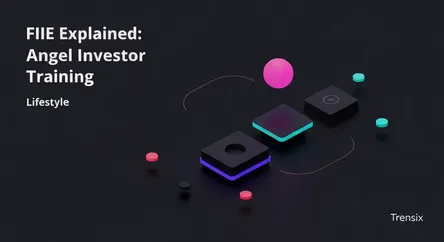Lifestyle
FIIE Explained: Angel Investor Training

Discover FIIE, the Brazilian program designed to train angel investors and boost the startup ecosystem through targeted financial education.
What is it?
FIIE, an acronym for 'Formação de Investidores e Investidoras em Empresas', is a prominent Brazilian educational program aimed at training individuals to become effective angel investors. The course is designed to equip aspiring investors with the essential tools, knowledge, and networking opportunities needed to invest in early-stage startups. It covers critical topics such as deal sourcing, valuation, due diligence, negotiation, and post-investment management. By professionalizing the angel investment process, FIIE aims to create a more robust and sophisticated support system for emerging businesses, fostering innovation and economic growth.
Why is it trending?
FIIE is gaining significant attention as Brazil's technology and startup scene continues to expand rapidly. With a growing number of innovative companies seeking seed funding, there is a parallel demand for 'smart money'—capital that comes with mentorship and strategic guidance. FIIE directly addresses this need by cultivating a new generation of knowledgeable investors. Its rise is also fueled by a broader interest in alternative investments and a cultural shift towards entrepreneurship. The program's success in creating a structured pathway into venture capital makes it a key trend in financial education.
How does it affect people?
For individuals, FIIE demystifies the complex world of angel investing, making it more accessible and reducing the inherent risks. Participants gain the confidence and competence to make informed investment decisions, potentially generating significant financial returns while supporting innovation. For entrepreneurs and their startups, the program expands the pool of qualified investors. This means greater access to crucial early-stage funding and, more importantly, to mentors who can provide invaluable industry expertise and connections. Ultimately, it helps build a stronger, more collaborative, and successful startup ecosystem for everyone involved.